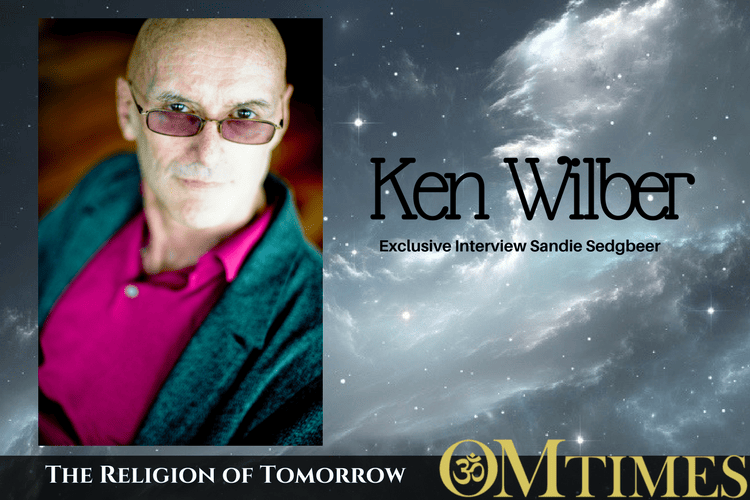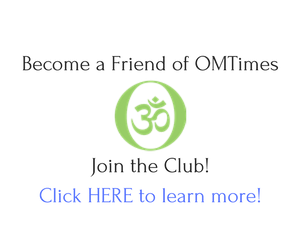Ken Wilber: The Religion of Tomorrow

Often, we’ll project that hidden or disliked quality on to other people, and then we think they possess a lot of that nasty quality, whether it’s anger or sexual impulses or a power drive or a self-controlling tendency. And so, we don’t like that in ourselves. We push it out of our own mind and tend to see it in other people.
So, cleaning up simply means working with your own shadow material. Simply including some amount of shadow work in your own spiritual development because one of the things that spiritual development does, on waking up types of awareness, is that a lot of shadow material can be generated in some of these situations. And it simply takes being aware of that, looking for that and knowing some techniques that can help you deal with your own shadow material. That’s what we call cleaning up.
And then the other one, showing up, is a little bit more technical. It simply has to do with the fact that human beings have several different major dimensions that they have access to. All of these dimensions are important, but for some reason, they’re not always included. And there are several different ways to talk about these dimensions. We can say that they refer to the good, the true and the beautiful. That also refers to morals, science, and art. And in Buddhism, we find Buddha, Sangha, and Dharma. The pronouns are I, we and it.
These are different dimensions, but they’re all important. Usually, they have completely entirely different types of human investigative techniques that deal with these different dimensions.
So, the techniques used to determine what’s morally correct is different from trying to determine what’s scientifically true, and that’s different from determining what’s as artistic merit. But, the point is that all three of those are important. We want to be able to include the good and the true and the beautiful. We want to include art and morals and science and not simply claim that only one of them like science is true and morals and art aren’t true or aren’t important.
That also has to do with how we approach spirituality. So, if you just believe in objective science and you study meditation, then you’ll study changes in brain waves. You’ll study changes in neurotransmitters. You’ll study some sort of objective scientific approach to the brain.
And if you believe in a first-person or subjective reality, then you’ll approach medication as the changes that occur in your awareness, in your own first-person feelings and how that changes and evolves as you continue to practice. And the only point is that, again, we want to include both of those. Both are very important.
And very few people go to the trouble of including both of those. On this program, as you discuss the relation of science and spirituality, for example, that just means that those are two very important dimensions, and we want to show up for both. We want to include both. So, that’s what showing up is.
So, the overall sort of sum of this is that the way we look at spirituality today is very, very limited and very narrow in comparison to what it could be. And the stuff that it could be is not just a waking up but also a growing up and a cleaning up and a showing up.
And these are things that an individual essentially would want to do in their life, anyway, because each one of those areas deals with something extremely important, and we’re running into all those realities all the time, anyway. And so, we can either acknowledge them and then look at all the evidence for waking up, there’s a striking amount of evidence for growing up, also for cleaning up, and showing up. And if we’re not including those, then we’re simply leaving something important out of our lives.
Spirituality can itself expand to embrace these other areas. If we do that, we just get a much more complete, a much fuller, more comprehensive approach to spirituality, and it also works better. It’s more effective. It’s more efficient.
Sandie Sedgbeer: Your comprehensive integral approach has already been applied to several world religions by some of their adherents in the belief that it can avert a cultural disaster of unparalleled proportions. What evidence of transformation are you seeing among those that are applying it?
Ken Wilber: Well, one of the immediate changes is that the addition of the growing up component, because when people are sort of left to their own devices, they don’t tend to notice these interior stages of growing up.
These stages are very much like the rules of grammar. You and I are both now following the rules of grammar of the English language – quite complex set of rules. But, if anybody asks us to write down what those rules are, you and I, neither one of us can do that.
So, the stages of growing up that a person’s at are just like the rules of grammar. People are interpreting the world according to that stage, but they have no idea they’re doing it, and they certainly can’t write down what the patterns or characteristics of that stage are.
And so, as people become aware of that, it changes their world view considerably because they realize that people that they disagree with or they realize that there are conflict areas in the world not only have, you know, a technological dimension and an economic dimension and a political dimension, they also have an interior dimension where people’s awareness is the stage of growing up that it’s at changes profoundly how they interact with the world.
And that’s certainly something that’s important when it comes to the religious dimension of our lives, because unfortunately for most people, religion means just learning a single dogmatic viewpoint, and then you’re supposed to look at everything through that single viewpoint. As it turns out, every major religion is coming from one of these major stages of growing up.
And so, if you’re just plugged into the dogma of your religion, then you’re only looking at the world through one narrow perspective, and that’s not gonna help. It’s certainly not gonna help with world peace or world poverty or global ecological warming. It’s not gonna help at all. As a matter of fact, it’s going to hurt.
Most people, as a matter of fact, aren’t even aware that there’s a waking up component to spirituality, that there actually is something called enlightenment or metamorphosis or satori.
So, this is a little bit new for a lot of people, and we acknowledge that.
Sandie Sedgbeer: Thank you, Ken Wilber. Ken Wilber is the founder of the Integral Institute and the co-founder of Integral Life. If you would like more information about his work, his books, Integral Theory, visit kenwilber.com and integrallife.com.
About the Interviewer
Sandie Sedgbeer – Host of What Is Going OM, is a veteran broadcaster, author, and media consultant, Sandie Sedgbeer brings her incisive interviewing style to a brand new series of radio programs showcasing the world’s leading thinkers, scientists, authors, educators and parenting experts whose ideas are at the cutting edge. Connect with her at her Host Page or www.sandiesedgbeer.com
A veteran broadcaster, author, and media consultant, Sandie Sedgbeer brings her incisive interviewing style to a brand new series of radio programs, What Is Going OM on OMTimes Radio, showcasing the world’s leading thinkers, scientists, authors, educators and parenting experts whose ideas are at the cutting edge. A professional journalist who cut her teeth in the ultra-competitive world of British newspapers and magazines, Sandie has interviewed a wide range of personalities from authors, scientists, celebrities, spiritual teachers, and politicians.





